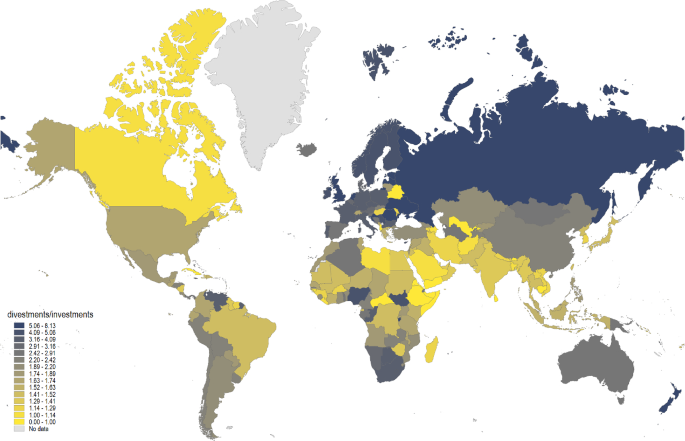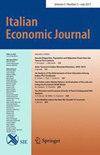Navigating Uncertainty: Multinationals’ Investment Strategies after the Pandemic Shock
IF 1.2
Q3 ECONOMICS
引用次数: 1
Abstract
Abstract Recent debates suggest that the global economy may enter a deglobalization phase accelerated after COVID-19 and the ongoing conflict in Ukraine. This study investigates the investment decisions by multinational enterprises (MNEs) in 2019–2022. We build on a unique data set of about 2 million parent-affiliate linkages to show that there has been a general reorganization of MNEs’ investment strategies since: (i) a relevant share of divestments ( $$33\%$$

应对不确定性:大流行冲击后跨国公司的投资策略
最近的争论表明,在2019冠状病毒病和乌克兰持续冲突之后,全球经济可能进入一个加速的去全球化阶段。本研究考察了2019-2022年跨国企业的投资决策。我们建立在大约200万个母公司附属公司联系的独特数据集的基础上,表明跨国公司的投资战略在以下方面发生了总体重组:(i)撤资的相关份额($$33\%$$ 33 % ) has not been compensated by new investment decisions ( $$14\%$$ 14 % ); (ii) domestic subsidiaries are more likely to be established and less likely to be divested; (iii) the average distance of a subsidiary from a parent company has increased; (iv) the number of countries in which the average MNE operates is higher than before. Therefore, after a basic empirical strategy for foreign direct investments and gravity controls, we first confirm a higher revealed preference for domestic investment by MNEs, among others, induced by higher exposure to COVID-19. When we delve deeper into divestment choices at the firm level, we find evidence of reshoring, i.e., when a divestment abroad by a parent company in a specific industry is positively associated with a domestic investment in the same industry.
本文章由计算机程序翻译,如有差异,请以英文原文为准。
求助全文
约1分钟内获得全文
求助全文
来源期刊

Italian Economic Journal
ECONOMICS-
CiteScore
2.30
自引率
8.30%
发文量
35
期刊介绍:
Italian Economic Journal (ItEJ) is the official peer-reviewed journal of the Italian Economic Association. ItEJ publishes scientific articles in all areas of economics and economic policy, providing a scholarly, international forum for all methodological approaches and schools of thought. In particular, ItEJ aims at encouraging and disseminating high-quality research on the Italian and the European economy. To fulfill this aim, the journal welcomes applied, institutional and theoretical papers on relevant and timely issues concerning the European and Italian economic debate.ItEJ merges the Rivista Italiana degli Economisti (RIE), the journal founded by the Italian Economic Association in 1996, with the Giornale degli Economisti (GdE), founded in 1875 and enriched by contributions from renowned economists, including Amoroso, Black, Barone, De Viti de Marco, Edgeworth, Einaudi, Modigliani, Pantaleoni, Pareto, Slutsky, Tinbergen and Walras.
 求助内容:
求助内容: 应助结果提醒方式:
应助结果提醒方式:


